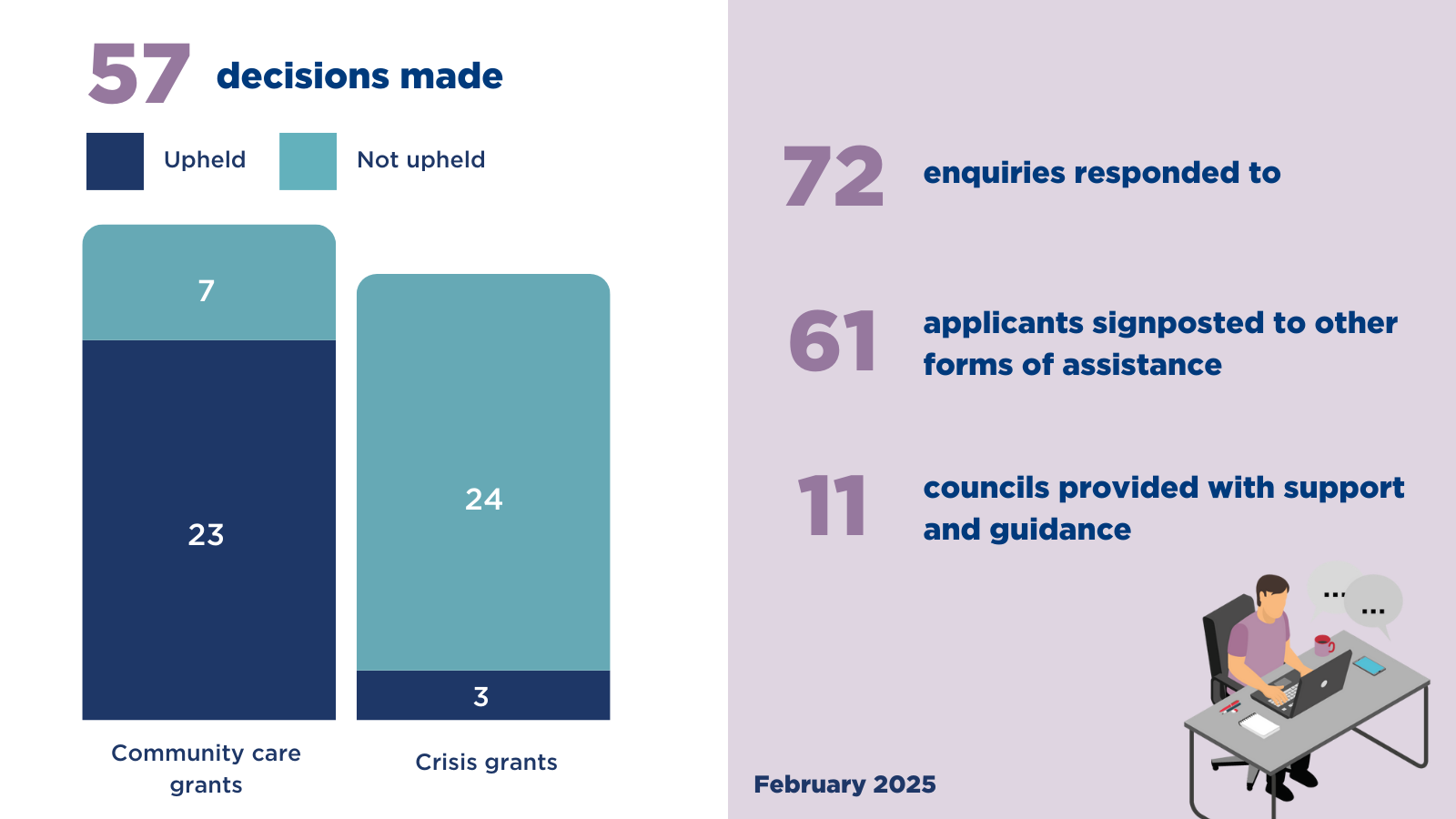
During January, our SWF team
- responded to 72 enquiries
- made 57 decisions
- 30 community care grants
- 27 crisis grants
- upheld 23 (77% of) of community care grants and 3 (11% of) of crisis grants
- signposted an additional 61 applicants to other sources of assistance. 77% of these were calling us instead of their local council in error. The remaining 23% had issues contacting their council as there was no freephone number
- received 11 enquiries from local council liaison contacts seeking advice on the guidance
Reconsideration process
Anyone who has received a decision from us – applicants, representatives and councils – can ask us to take another look and reconsider our decision if they disagree with it. We are not required by law to have this reconsideration process; we introduced it as a voluntary step to promote quality and learning from reviews.
In the first instance, we encourage parties who disagree with a decision to discuss their concerns with the case reviewer who made the decision. They have an in-depth knowledge of the review and are best placed to respond to any queries you have about their decision. They can also provide further information about asking for a reconsideration.
The outcome of a reconsideration may be to confirm the original decision or to re-open a review. We may decide to change the decision but there are limited reasons why we would do this. We will not change our decision simply because you disagree with it. Full details about the process and timescales are available on our website.
An example of a recent case where a reconsideration request was made is outlined below. You can find more examples in the searchable case directory on our website.
Case studies
Insufficient enquiries made Reconsideration (council request)
C applied for a community care grant for several household items as they were broken or worn.
The Council declined the application, determining that C's circumstances did not match any of the qualifying criteria for a grant. At first-tier review, the Council revised their decision based on the information C provided and awarded some items that they assessed as meeting 'high' priority.
We reviewed the Council's file and spoke with C. They told us they need to wash and dry clothes more often because their mobility issues sometimes make it hard to get to the bathroom in time. Their tumble drier was broken, and they were temporarily going to a family member to make use of theirs. We considered this was not a long-term solution and assessed that a tumble drier met high priority in C’s case. We asked the Council to award a tumble drier but agreed other items requested met high priority.
The Council asked for a reconsideration of the decision to award a tumble dryer. They felt we had applied guidance incorrectly, saying the item should only be given medium priority based on the priority matrix. We noted that C had several long-term health conditions that made their need for a tumble dryer more urgent. Based on this, we agreed with the original SPSO decision-maker’s assessment and did not change their decision.
Recommendations
- Award a tumble drier.
Feedback for the Council
- The information provided by C regarding their health and toileting issues, and the impact that this had on their need for a tumble drier, was sufficient to assess that it met high priority.
- The decision letters could have more clearly stated at which stage the application was being declined, and contained a more detailed explanation of priority assessments.
We asked the organisation to provide us with confirmation that the award was made within one week.